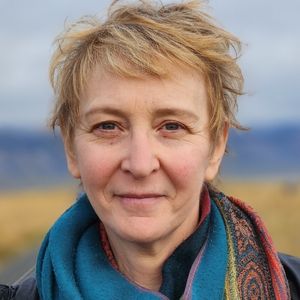The UNC School of Social Work launches its annual Clinical Lecture Series (CLS) next month with a lineup of speakers and events that among other topics will focus on healing racial wounds, exploring internalized racial trauma and working with whiteness in a racialized society.
The annual CLS, now in its 17th year, provides lunchtime trainings on best practices for students, professionals, community members, and those caring for individuals and families in ways that are therapeutic, anti-oppressive, intersectional, and centered on self-determination. Since its founding year, thousands have participated in nearly 200 workshops either in-person, via livestream or using self-paced options.

From the beginning, the lecture series sought to address the education needs of current students and area practitioners and to strengthen the opportunities for a diverse learning experience. That focus remains today, said Deborah Barrett, the School’s director for continuing education and the founder of the lecture series. Evidence of this commitment is displayed on the CLS archival page, where Barrett has included description links to nearly every single lecture the School has hosted.
In the early years, the series offered monthly presentations over the academic year, with speakers addressing a range of topics such as motivational interviewing, aging, grief, anxiety disorders, cultural trauma, dissociation, mindfulness, ethics, suicidality, and the power of positivity, just to name a few.
Starting in 2014, the offerings expanded. The School’s Family Support Program added a second lunchtime series to focus on family and disability, with topics ranging from neurodiversity to the needs of caregivers. The following year, Theresa Palmer and Tina Souders in the 3-year Winston-Salem MSW Program started a lecture series, largely for the benefit of field instructors, who can participate free of charge. Most recently, Barrett launched a new series of institutes to provide more in-depth trainings.
Over the last several years, participants have had the opportunity to choose from two dozen or more new lectures across the fall and spring semesters, along with selections from a growing library of self-paced programs created from previous lectures. This additional programming allows for a wider spectrum of topics, such as trauma treatments that incorporate expressive arts, yoga, or social justice; ethical practices with gender non-conforming individuals; antiracist therapeutic approaches; and trauma-informed care for people with developmental disabilities.
“We really try to honor the evidence base of the social work field and ground the discussion in the tools that we know,” Barrett said. “But we also want to be on the cutting edge and focus on current issues and whatever we see coming and think about how we can help people grow.”
That commitment is just one of the reasons why Mignon Hooper, a licensed clinical social worker in Durham, has remained a long-time CLS participant. “I count on the programs being thought provoking, incorporating critical self-reflection and nuances of daily dilemmas we face as clinicians and as humans, so that we can remain relevant for our clients and community,” she said.
To that end, a team of faculty, students and staff worked diligently last year to keep the series moving forward, even as the COVID-19 pandemic forced the closure of on-campus, in-person activities. As classrooms pivoted to remote learning, the lecture series did the same, livestreaming all workshops, including a few that were tailored to address the challenges of the pandemic, such as access to mental health services. The interest was overwhelming.
“We added a couple of workshops, including one on telehealth and another on how to deal with anxiety during uncertain times. Both were subscribed to the max,” Barrett said.
She credited the School’s technical support and a team of MSW students, including program manager, Akshata Malur, for working behind the scenes to keep everything running smoothly.
Given the ongoing challenges and long-term effects of the pandemic, several of the presentations in this year’s lineup will focus on themes dealing with grief and loss, trauma and healing. Equally important was including lectures that focus on themes of race and inclusion, especially as the nation continues to struggle for racial equity, Barrett said.
She attributes part of the success and longevity of the lecture series to the School’s commitment of ensuring that UNC social work students, staff, and academic and field faculty have access. The CLS team also works to make the programs physically accessible to the community and financially affordable for everyone by offering scholarships, as well as discounted and waived fees.
Dedicated faculty support has also been key, she said. The late Dr. Matthew Howard provided especially critical financial support in 2011 when state budget cuts threatened to end the clinical lecture series altogether. Howard, who died on Dec. 15, 2018, endowed the series for five years, insistent that the continuing education training was too valuable to lose.
“Matthew was really so kind about helping the series anyway that he could,” she said. One of Howard’s own lectures, “Behavioral Addictions,” which is available on the CLS website for free, has been especially popular over the last year, she added.
“He was the strongest advocate for making these lectures available and keeping them free and subsidized whenever possible. So, it just made so much sense to waive all fees for his training,” she said.
Howard’s lecture, which is part of the CLS library, is just one of many previous programs being added as a self-paced option for continuing education. Long-term, Barrett hopes to broaden the reach of the series.
“We’ve been working on increasing access and fortunately, technology makes that more doable,” she said. “Not only have people from around the country been registering, we’ve also gotten a few participants internationally. My hope is that we can keep growing that audience.”

